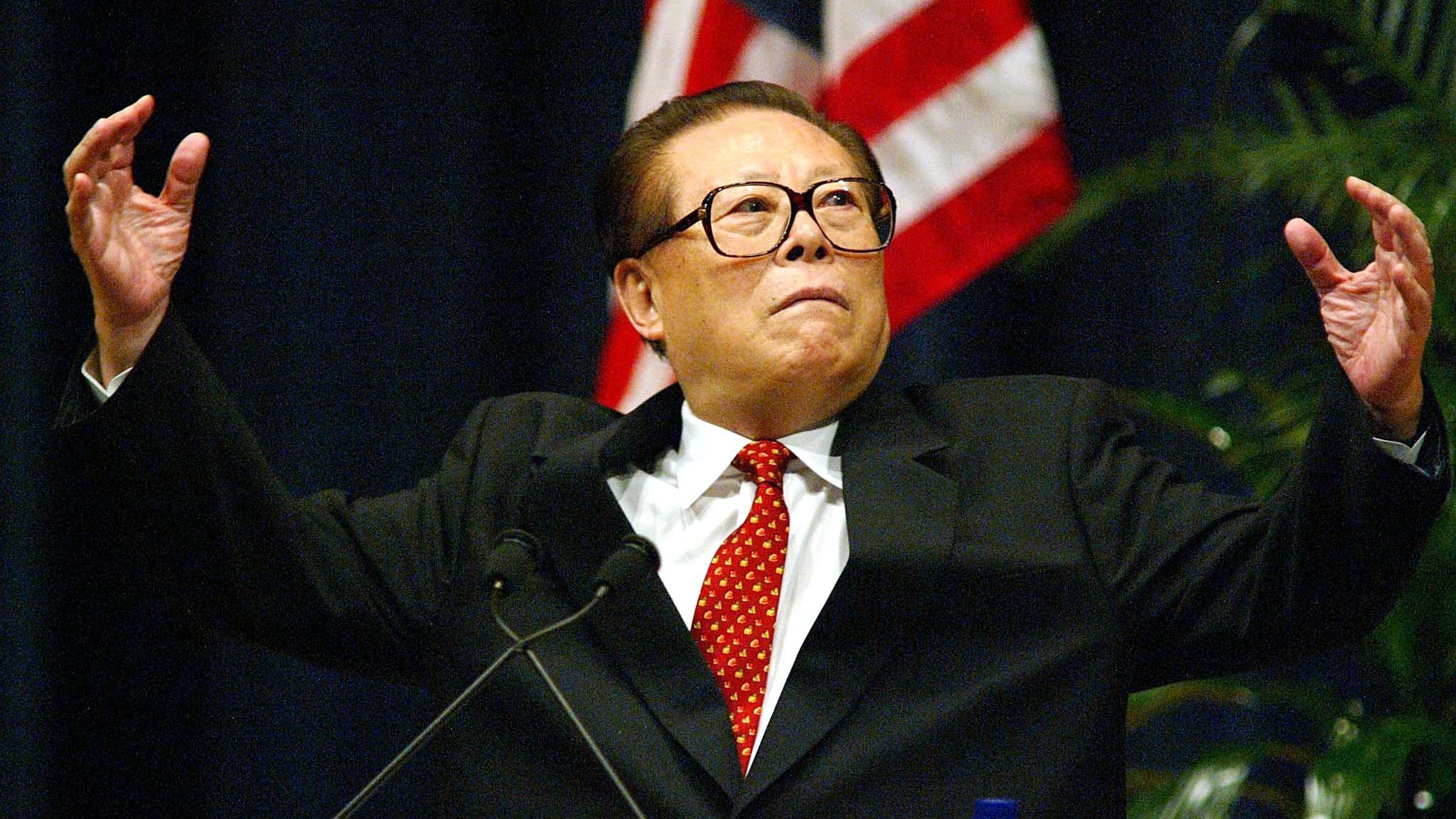Why do covid-19 cases keep growing in China?
4:29
(CNN Spanish) --
"I had met Jiang Zemin when he was mayor of Shanghai," begins Henry Kissinger, former US Secretary of State, in his influential book
On China.
"I didn't expect him to become the leader who led his country from disaster to the amazing burst of energy and creativity that has characterized China's rise."
Jiang, the former leader of China who ruled between 1989 and 2002, died on November 30, 2022 at the age of 96, in the midst of a leukemia picture, according to the state agency Xinhua.
Former Chinese leader Jiang Zemin has died, according to state media
His death occurs at a difficult time for China, between the consolidation in power of Xi Jinping, the current leader, the protests by part of the population against the harsh policies against covid-19 and the growing rivalry with the United States.
On Wednesday, Xi said the country "deeply mourns" Jiang's death and will "turn grief into strength" to build a modern socialist China, according to a Foreign Ministry statement.
China's President Jiang Zemin during a speech at Texas A&M University in College Station, Texas on October 24, 2002. (Credit: PAUL BUCK/AFP via Getty Images)
Many, especially in the West, miss the days of Jiang, a cosmopolitan intellectual—on more than one occasion he delivered US President Abraham Lincoln's Gettysburg Address—with a friendly but informal manner and full of confidence, as Kissinger recalls, who treated him several times in person.
advertising
In an interview with CNN in May 1997, Jiang said that "regardless of one's profession, if one can enjoy reading some literature, enjoy some music, that can be very helpful for the healthy growth of one's person".
jiang in power
"He led his country through one of the largest GDP per capita growth rates in human history, consummated the peaceful return of Hong Kong, rebuilt relations with the United States and the rest of the world (after the Tiananmen massacre), and put China on the way to becoming a global economic power," writes Kissinger.
In addition to these milestones, Jiang is also celebrated for bringing China into the World Trade Organization (WTO) and for getting his country to host the 2008 Beijing Olympics.
In short, he is remembered for achieving China's integration into the international system amid the post-Cold War and Tiananmen chaos, and after the country cemented its market opening through "Socialism with Chinese Characteristics."
5 things: China announces rules to control social networks 2:46
Others instead blame Jiang for the growth of corruption in China and for consolidating the dominance of the Communist Party and stopping any political reform in the country.
His rise, in fact, is linked to one of the most difficult moments in contemporary China: the violent repression of the pro-democracy movement in June 1989, events popularly known as the Tiannanmen Square Massacre in Beijing.
Up to 10,000 people are believed to have been arrested during and after the protests, and estimates of the death toll range from several hundreds to thousands.
These events led to widespread international condemnation and the departure of the then Chinese leader, Zhao Ziyang, partly because of his sympathies with the protesters.
That same June, Jiang took office — replacing Zhao and with the support of Deng Xiaoping, the great Chinese reformist leader — as Secretary General of the Communist Party of China and since 1993 also president of the country, positions he held until 2002.
His government was characterized by economic liberalization and the embrace of globalization, generating unprecedented growth in the economy, while maintaining enormous control over political and ideological issues.
Jiang's ideas
In fact, Jiang was one of the last Chinese leaders to be guided by the premise that economic modernization had to come before political reform to avoid a collapse like that of the Soviet Union in 1991, according to American political scientist Bruce J. Dickson. in his article
Beijing's ambivalent reformers.
Chinese President Xi Jinping (L) talks with former President Jiang Zemin on October 24, 2017 in Beijing, China.
(Credit: Lintao Zhang/Getty Images)
On the role of the Communist Party of China, Jiang expounded in 2000 his "Theory of the Three Representations".
According to Sergio Cesarín, an academic specializing in China, the central argument is that the party does not represent only the workers, but all the productive forces, which allowed the entry of businessmen (the so-called "red capitalists") as members.
"Before reviled, now they would become part of the party iconography together with workers, peasants and intellectuals. This position aroused praise and criticism", writes Cesarín in his book
China is coming.
Jiang was born in 1926 and studied electrical engineering in Shanghai, joining the Communist Party in college.
After the triumph of the Revolution in 1959, he began to rise through the ranks, becoming Minister of Electronic Industry in 1983 and Mayor of Shanghai in 1985.
"He was a contradictory figure and an accidental leader," said Pin Ho, founder and CEO of Mirror Media Group, an influential New York-based Chinese-language publisher that publishes books and websites on Chinese politics.
"He admired and respected Western cultures, but he also had to live within the Chinese political system."
With information from Steven Jiang.
China








